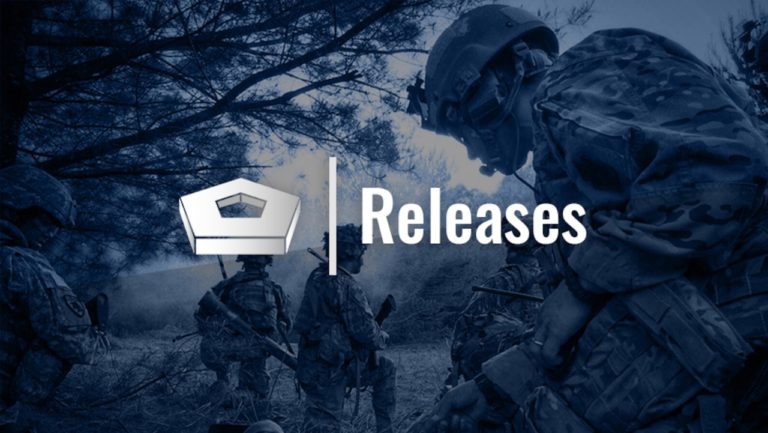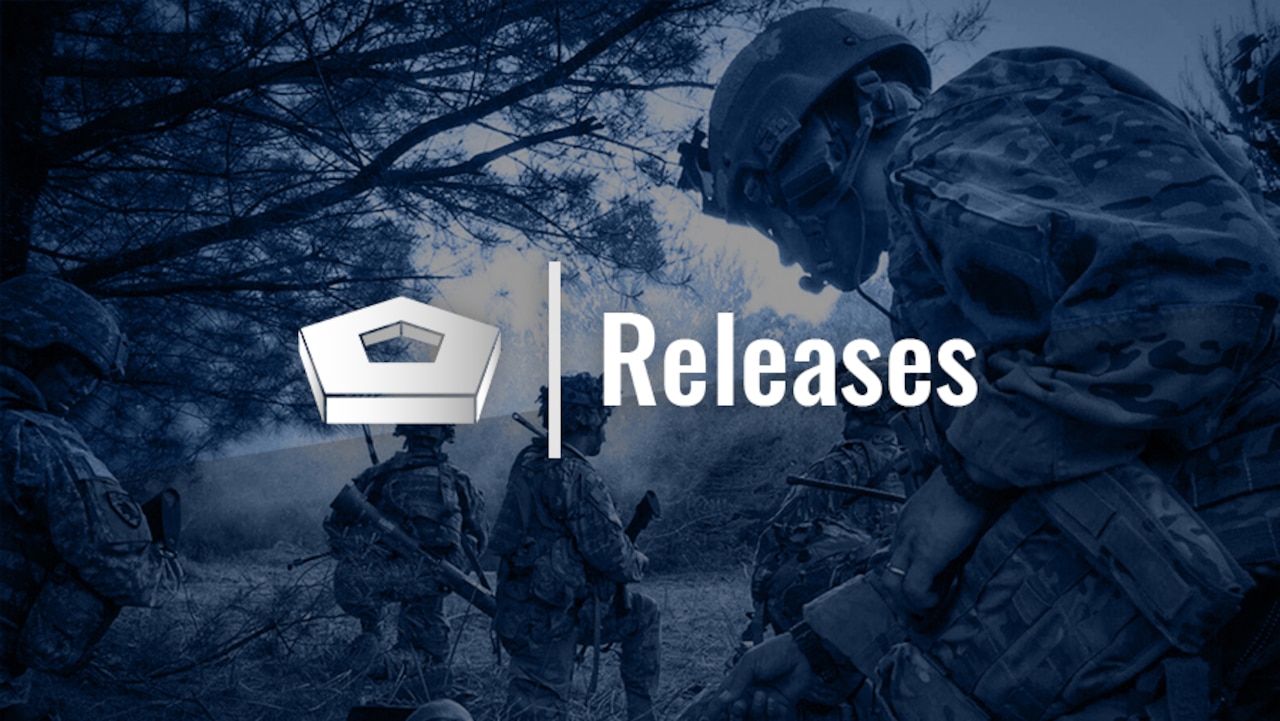

Good morning, everybody.
Rudy, thank you for that kind introduction.
And thanks for pulling this together – it’s pretty remarkable work that you’ve done over the past several weeks and months… So let’s give Rudy a big round of applause.
And thanks to the DoD Pride group for bringing together this community at the Pentagon today.
As Rudy mentioned, it’s great to see such a tremendous array of the Department’s top leaders, past and present… these leaders who are here today obviously to support this important event.
And it’s great to be sharing the same stage with Major General Lauderback and Lieutenant Moore, who have served their country with distinction.
Let me begin by thanking all of you for your service – for the tireless work that you do every day to defend this nation.
And just as important, thank you to your spouses, partners, and families, some of whom are joining us today.
None of us could do what we do without your support and your sacrifices.
This June, we celebrate Pride Month across the Department by recognizing the extraordinary achievements of our lesbian, gay, bisexual, and transgender service members and civilian employees.
And we reflect on the progress we’ve made in making sure that everyone who wants to serve and is qualified can do so with dignity and respect.
We know that we have more work to do, but thanks to your courage, your advocacy, and your dedication, the Department of Defense has been able to do more to secure LGBTQ+ rights than at any other time in our history.
That includes efforts to ensure that all military families and spouses receive the benefits their loved ones have earned and to which they are entitled… to helping veterans who previously were forced out because of their sexual orientation to apply to correct their records, or — where appropriate — to return to service.
You know, it’s often said that progress is a relay race, and not a single event.
That’s certainly been true when it comes to the pioneers who fought for this community’s civil rights in the military.
Throughout American history, LGBTQ+ citizens have fought to defend our rights and freedoms — from the Founding of our nation to the Civil War, from the trenches of two World Wars to Korea and Vietnam, and from Afghanistan to Iraq.
They fought for our country even when our country wouldn’t fight for them.
Even as some were forced to hide who they were… or to hang up their uniforms.
When I reflect on the hard-fought progress that has been made over the years, the efforts of a number of notables spring to mind.
I’m thinking of heroes like retired Major Margaret Witt.
She treated countless troops as a nurse during Operations Desert Storm, Southern Watch, and Enduring Freedom before being outed against her will and discharged from the Air Force under “Don’t Ask, Don’t Tell.”
Major Witt could have walked away, but instead she took a stand — and challenged that policy in court. Her efforts contributed to the repeal of “Don’t Ask, Don’t Tell” more than a decade ago.
I’m thinking of Technical Sergeant Leonard Matlovich, a decorated Vietnam veteran who inspired Major Witt.
Now, he was only 19 when he volunteered to serve.
He did three combat tours in Vietnam and was severely wounded in Da Nang.
He earned the Purple Heart, the Bronze Star, and the deep respect of his teammates.
But when he came home and came out, he was discharged by the Air Force.
So he took up a new fight in courtrooms across the country—a fight for his right to serve his country as an openly gay man.
And I’m thinking of Dr. Frank Kameny, a proud U.S. Army veteran of World War II. Dr. Kameny was later hired as an astronomer for the Army Map Service — until he was fired in 1957 for being gay.
He later said it felt like “a declaration of war” against him by his own government.
Then he said, like any true soldier would, “I tend not to lose my wars.”
He wasn’t kidding.
Frank Kameny spent the rest of his life at the forefront of the gay-rights movement – by mentoring the next generation of activists, including Leonard Matlovich; by marching in protests; by founding the Mattachine Society of Washington, a pioneering gay-rights advocacy organization; and, in 1961, by bringing the first civil-rights claim based on sexual orientation all the way up to the U.S. Supreme Court.
Now, Dr. Kameny lost that battle in court.
But his activism helped set the stage for progress in the fight for full equality.
Of course, not every person in this story has been a member of this community.
I’m thinking, too, of Admiral Mike Mullen, my good friend and mentor. As Chairman of the Joint Chiefs of Staff, he took a courageous stand against “Don’t Ask, Don’t Tell”… a stand that led directly to its repeal.
And so today, we commemorate 10 years since the repeal of “Don’t Ask, Don’t Tell,” and we welcome a new generation of soldiers, sailors, airmen, guardians, and Marines openly and proudly serving their country.
Today, we can recognize and honor their contributions rather than questioning their ability to serve.
And today, we reaffirm that transgender rights are human rights, and that America is safer — and better — when every qualified citizen can serve with pride and dignity.
Now, that’s real progress.
And it was hard-fought and hard-won.
But we’ve got more work to do.
Our work isn’t done until we tackle the challenge of sexual assault and harassment in the force. And we know that service members from this community are at elevated risk of such crimes.
Our work isn’t done until we recognize that the health of the force fully incorporates mental health, including for LGBTQ+ service members. That’s why we recommit to treating all wounds, both visible and invisible.
And our work isn’t done until we create a safe and supportive workplace for everyone –free from discrimination, harassment, and fear.
Because nobody should have to hide who they love to serve the country that they love.
And no service member who is willing to put their life on the line to keep our country safe should feel unsafe because of who they are.
And no citizen who is qualified, willing, and able to do the job should be turned away.
So we’ve got more to do.
But I’m confident that we’ll get there because of all of you… and because of all the lesbian, gay, bisexual, and transgender service members and civilians around the world who never stop living the values that they so bravely defend.
I know that you are especially proud this month.
And rightfully so.
Well, I’m proud, too.
Proud every month and every day to call you my teammates… and to serve alongside you.
Because your lives, your careers, your service, and your stories are living proof that we are stronger and more effective together.
So thank you for your service.
Thank you for your skill.
And thank you for the change and the progress that you continue to lead.
It matters greatly to the defense of this tremendous nation.
Thank you very much.